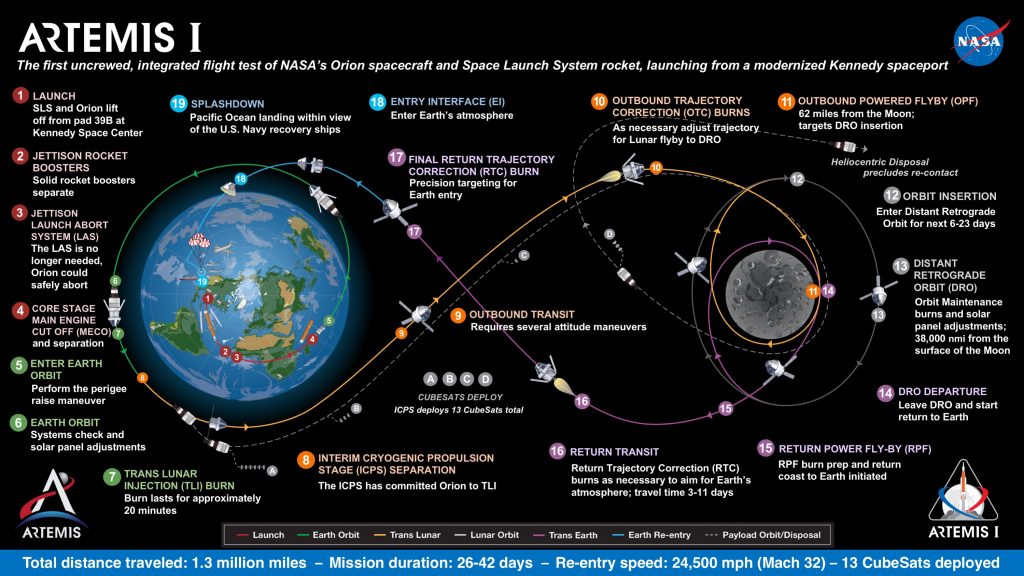The decade to watch for long-term settlement of the moon, and possibly Mars as well, will be from 2030 to 2050. But it all begins right away with the August 29 launch of Artemis I.

Since the Apollo 17 mission in 1972, Artemis I, an unmanned test mission, has been the first step toward returning people to the moon. Because astronauts aim to use the lunar surface as a sort of pit stop for rest and relaxation during extended trips to the red planet, moon habitation is crucial for Mars exploration.
The European Space Agency (ESA), a participant in the Artemis programme, and NASA claim that the initiative will demonstrate how space exploration has progressed over the previous 50 years.
A lot has changed since 1972.
One is that the eyesight and technology are more sophisticated. Humans are expected to reach the moon in 2025 and create a more permanent presence through missions in the years that follow, according to Artemis.
Future Artemis missions will settle people on the moon for a month or two, but initially, individuals will just visit for a week. Permanent agreements will be reached eventually, according to Juergen Schlutz, an ESA aerospace engineer, who spoke to DW.
The moonwalk by women and people of colour on Artemis will also be a first.
The first of six Artemis moon missions scheduled from now through 2028 is the forthcoming launch. Onboard the Orion spacecraft for Artemis I, there won’t be any people. The mission is actually more of a safety evaluation. But individuals will be a part of later missions.
In an effort to revive the space programme, the Artemis programme was launched in 2017. The ESA, NASA, and space organisations from several other countries collaborate to carry it out.
“We aim to expand human presence in space. Our closest neighbour is the moon. Although it has the means and attributes for study, the Artemis programme is primarily focused on giving us our first outpost in space, according to Schlutz.
The project will launch an Orion spacecraft toward the moon for between 26 and 42 days on August 29 at 07:30 in Florida (13:30 in central Europe) from the Kennedy Space Center. Before splashing down into the Pacific Ocean, at least six of those days will be spent in a far-off orbit around the moon.
A safety test for upcoming crewed spaceflights is Artemis I.
Schlutz claims that this mission’s objective is to validate the safety of Orion and the Space Launch System for upcoming crewed flights.
Orion is a partially reusable spacecraft that has primary and secondary repulsion engines to move it away from Earth’s orbit and toward the moon. It also has solar panels, an automated docking system, and other features.
Mars colonisation is the long-term objective of the Artemis programme. According to Schlutz, using the moon as a sort of outpost for Mars explorers is an important step along the way. It is planned to build the first lunar landing pad, known as Artemis Base Camp, by the end of this decade.
The moonbase would serve as an outpost to improve living conditions and support operations for up to two months. It would be within a week for astronauts to get there. Impressive considering that only 200 years ago, it took explorers up to four weeks to travel from Europe to the Americas.
The systems and technologies required to exist on other planets will be evaluated on the moon, according to Aiden Cowley, an ESA materials scientist.
Systems for resource management, radiation protection, and energy harvesting will be tested on the moon before being transported to Mars. Since it takes six months to get to Mars, the moon mission provides a more convenient testing site.

